What are Quick and Easy Lesson Plan Hook Ideas for Science?
What do you think about lesson plan hook ideas?
Let’s try this activity. Look at this image of two separate classrooms. What do you observe?

One classroom is full of students who are bored, not engaged. The other classroom has students participating and asking questions. Why is this? Quite possibly, the teacher in the first image did not get their students’ attention at the beginning of the lesson, while the other teacher used a hook. What lesson plan hook ideas do you think this teacher used?
In This Post
I will discuss what a hook is and how it should get your student’s attention. I will also share how a hook activates the reticular activating system in the brain. I’ll share some simple ideas and examples of hooks or phenomena you can use in your science lessons.
When you lesson plan, be sure to use your free guide Plan Your Science Unit in LESS Time with 3 Simple Steps! Get yours today!
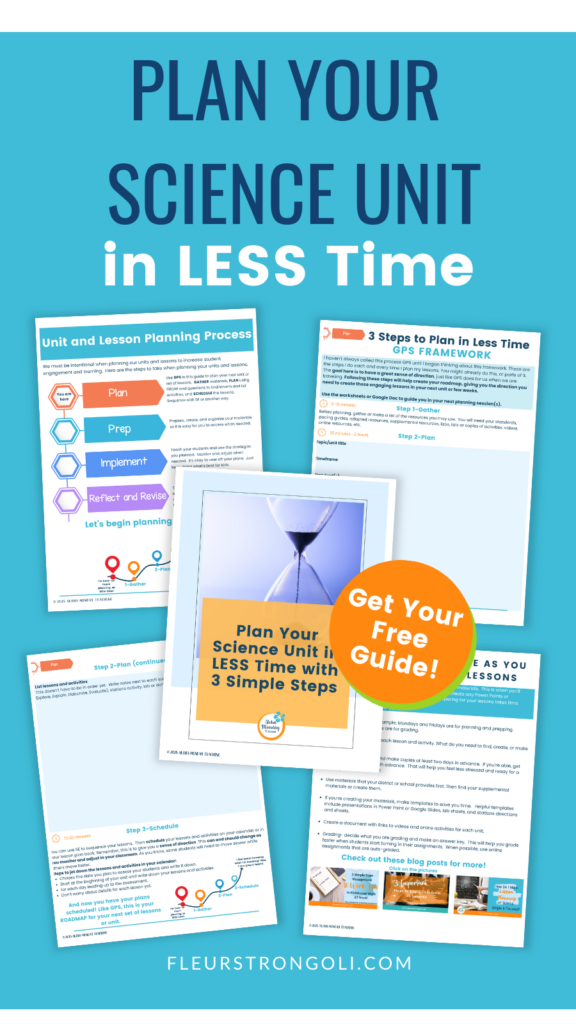
Disclosure: This post contains some affiliate links for your convenience. As an Amazon Associate I earn from qualifying purchases with no cost to you.
What is a hook in a lesson plan?
The hook in a lesson plan is something engaging that grabs your students’ attention. It gets them to wonder about what they will be learning. Students will be curious to discover information on this new or revisited topic. It has them focusing on what you are going to say or do next.
In Science, “phenomena is an observable event that occurs in nature. In the Science classroom, phenomena are used as the hook in a lesson.” The goal is to spark the curiosity of students and have them ask questions related to your topic.
The hook doesn’t have to take very long. It should take a few minutes. In a 5E lesson, the Engage component can take up to 30 minutes.
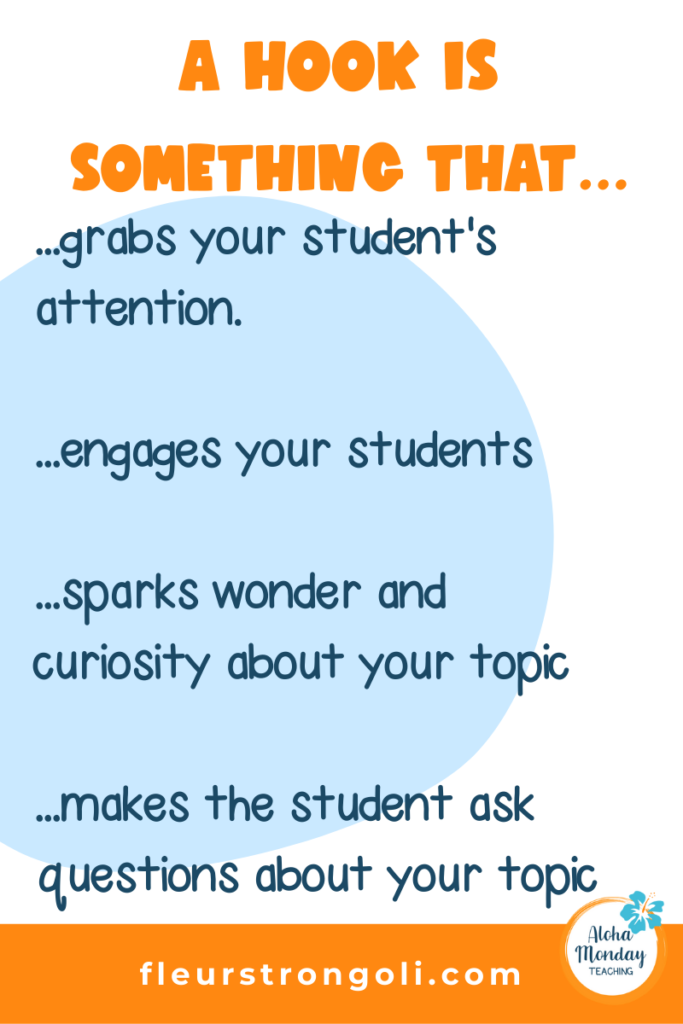
How the Brain Works with the Hook (RAS)
The reticular activating system, or RAS, is located in your brain stem. Something important to note about the brain stem is that it’s the most primitive part. It’s the part of your brain that regulates your body and helps you survive. This is where the “fight, flight, or freeze” response happens.
Knowing this will help you understand the RAS and its importance in learning. Your RAS looks for anything new in your environment. It helps determine if something is a threat or reward. It filters out information that is unnecessary, and focuses on what you want it to focus on.
Your hook in your lesson plan can activate your students’ reticular activating systems. When you engage them with an image, problem, demo, or question, their brains will become curious. You will have the attention of the RAS, which then allows students to process what you are saying or doing. A RAS will focus on anything that it deems important, and then sends messages to the rest of the brain.
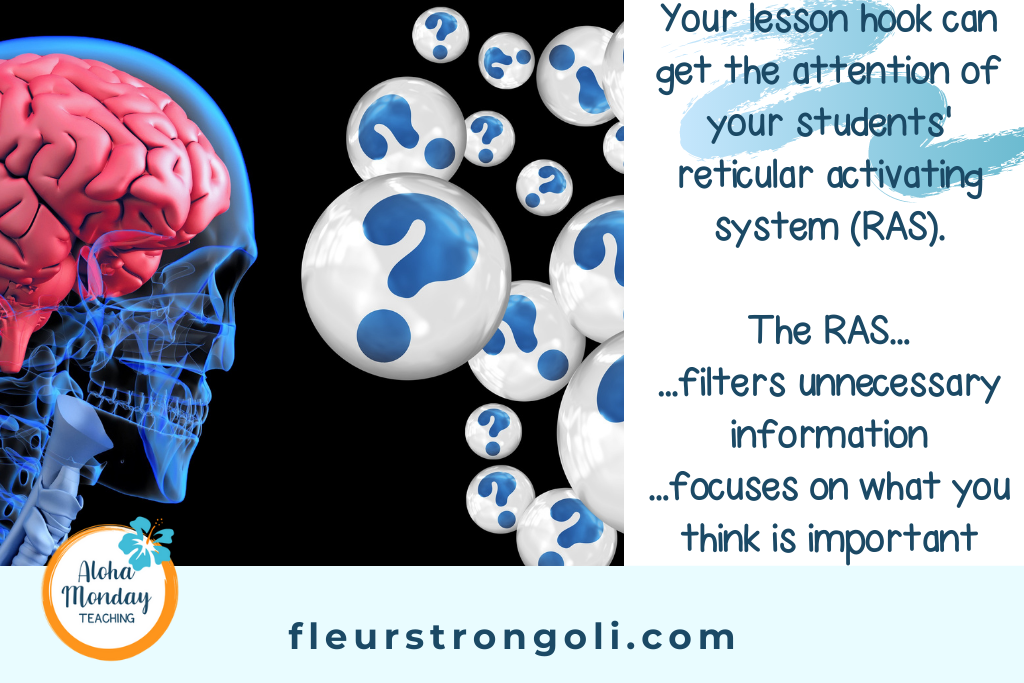
Lesson plan hook ideas
Planning your hooks for your lessons can seem daunting, because you want to make sure it gets your students’ attention and activates the RAS in their brains. But, it doesn’t have to be so complex. It can be quick and easy to plan.
A hook can be any phenomena, images, a video, a question or problem, a story, a puzzle, or a demonstration. It just needs to be related to your content, so when students ask questions, it will lead them to discover what you will be teaching.
You can find lesson hooks for Science anywhere. Think of a great demo you’ve done in the past that can be used as a hook. What observable event will generate questions and curiosity? You can search for images or videos about your content. You can have students volunteer and demonstrate a concept in front of the class. Find something that can promote an emotional response to get kids engaged.
When showing them a hook or phenomena, have them complete an “I Notice, I Wonder” chart in their notebooks. Refer back to this during the unit to find out if any questions were answered.
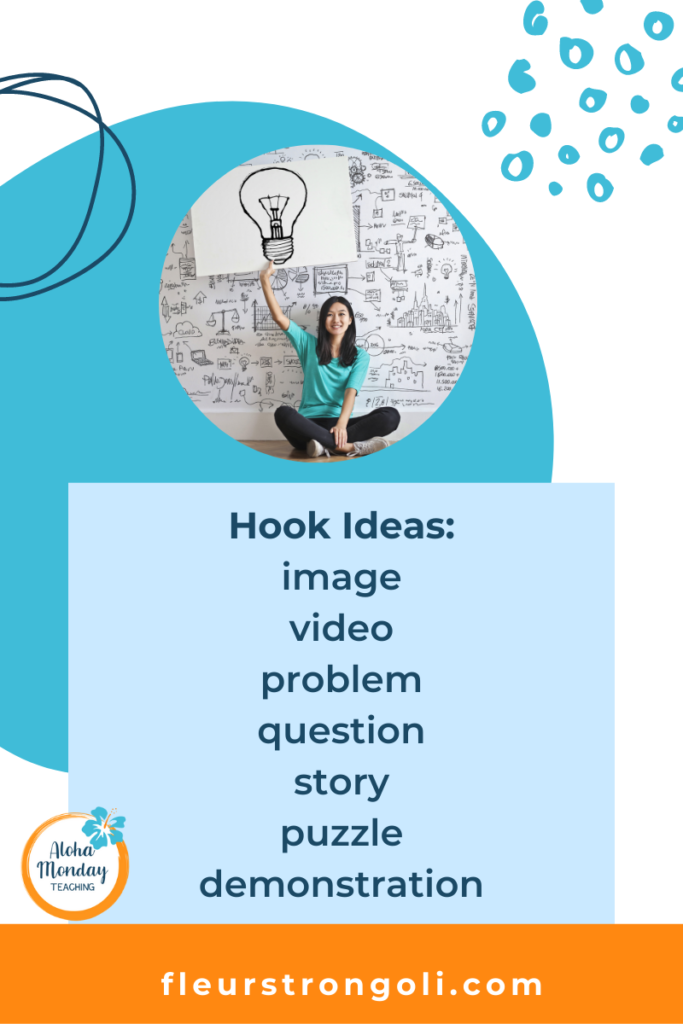
Lesson plan hook examples
Here are some examples of hooks you can use in your Science classroom. Remember, you want the hook to make students curious and ask questions about your topic.
Climate change– You can show a before and after picture of an area affected by climate change, such as coral reefs or forests.
Cells– You can show a picture of an animal cell and a plant cell under a microscope for students to compare and contrast. For an example of a 5E unit plan on cells, be sure to read this blog post about lesson planning in science.
Weather– You can take students outside and have them observe the weather.
Natural disasters– Show students an image or video of a tornado or hurricane.
Air Pressure– Do the egg in a bottle demonstration. You can watch my video about Air Pressure Activities here.
Friction– You can have a race using cars on the tile and carpet.
Newton’s Laws of Motion– Show a video of something colliding with another object.
Ecosystems– Have them brainstorm animals in different areas. Then show them a list and images of endangered species to trigger an emotional response.
Wrap Up
I discussed hooks in lesson plans, including what a hook is and how a hook gets the brain engaged. I shared some lesson plan hook ideas and examples you can use in your classroom. Remember that hooks don’t have to be complex, but they should be engaging, interesting, and relevant to your content.
Read More
Read more about lesson planning in this blog post, How Do I Make Lesson Planning of Science Simple and Focused?
Check out some of my favorite “brain” books for teachers. You can find them on my Resources page.
Your Turn
What are some of your favorite lesson plan hooks? What ideas do you have for lesson plan hooks? If you’re not using a hook at the beginning of each lesson, make a plan to use one in your next unit. Then try it out, and see how it grabs your students’ attention. Reply in the comments.
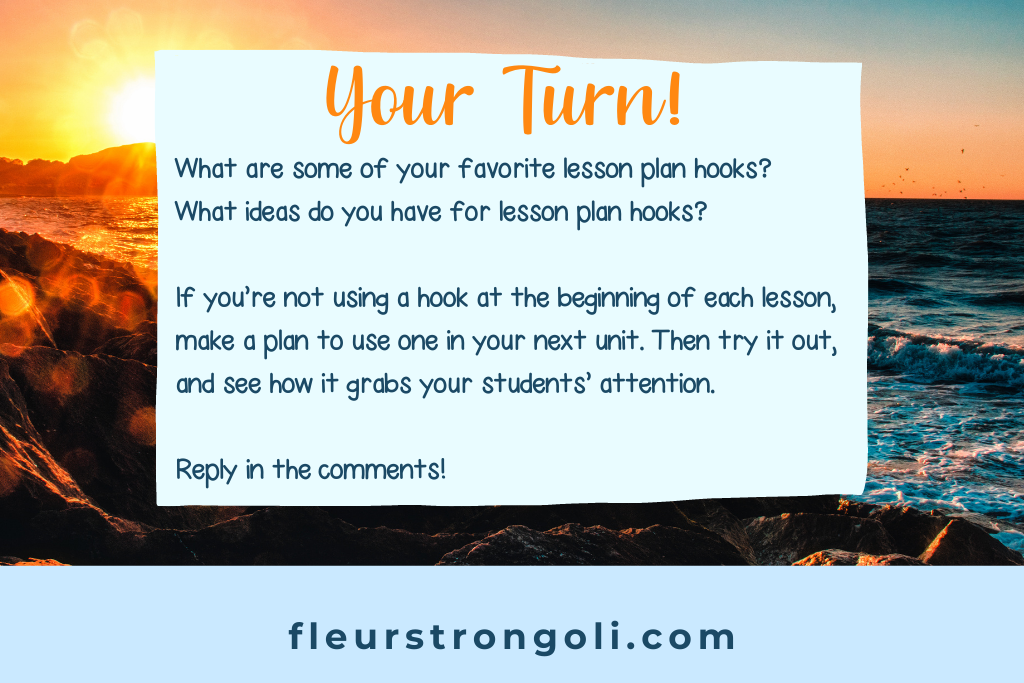

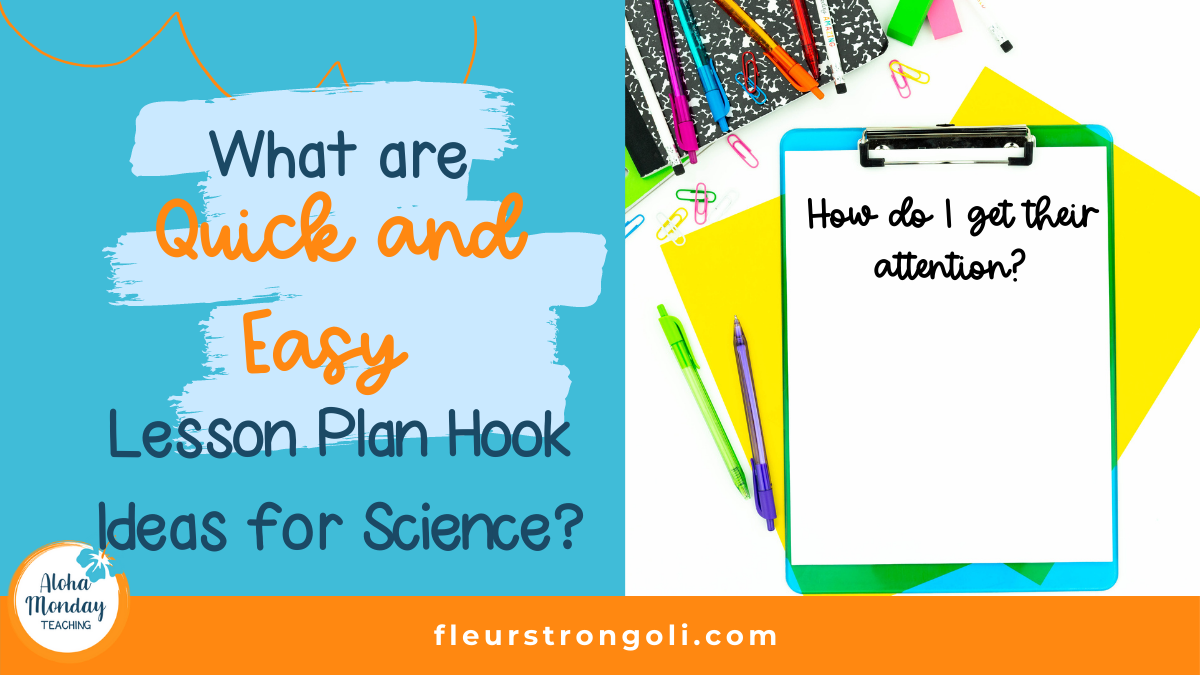
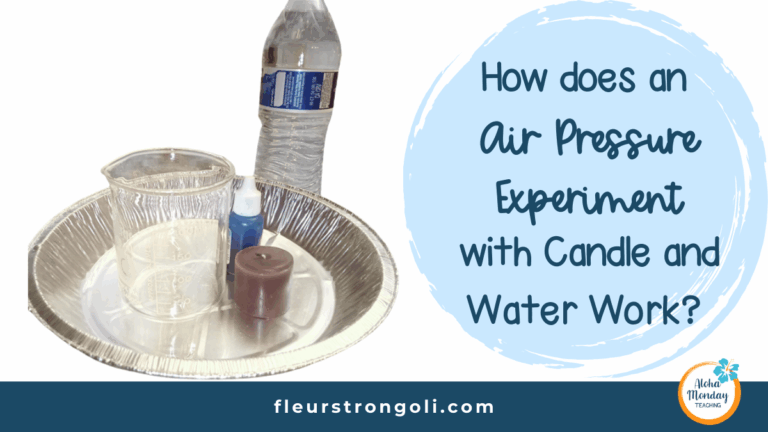

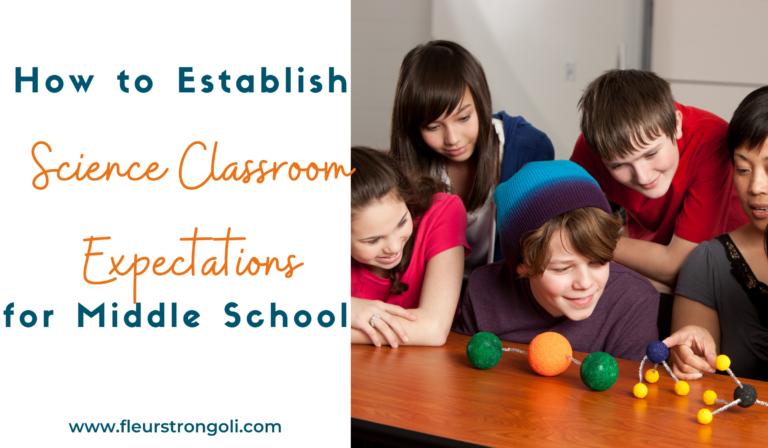
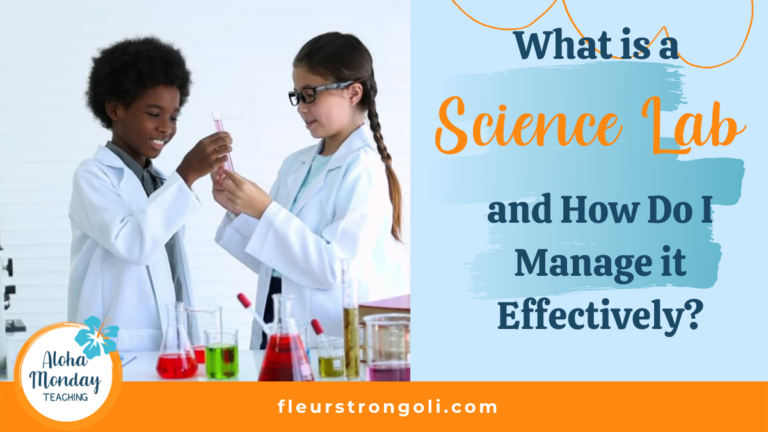
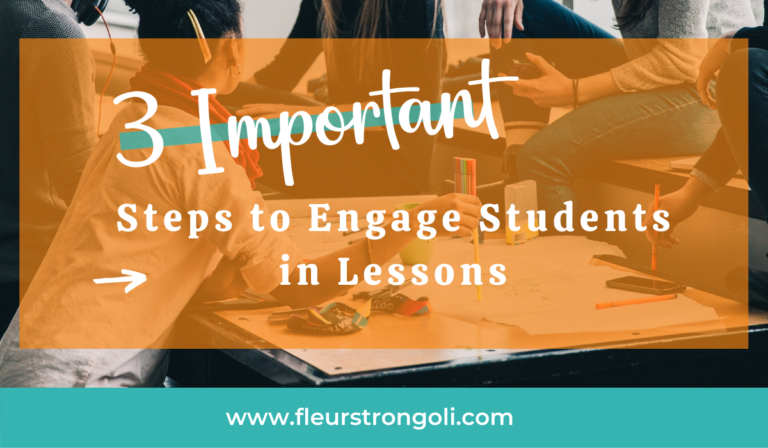
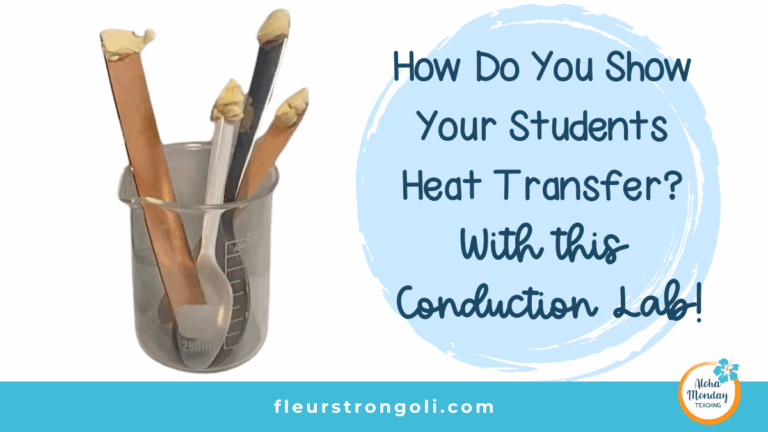
Your examples of lesson plan hook ideas were very beneficial. Thank you for sharing great tips on how we can engage our students.